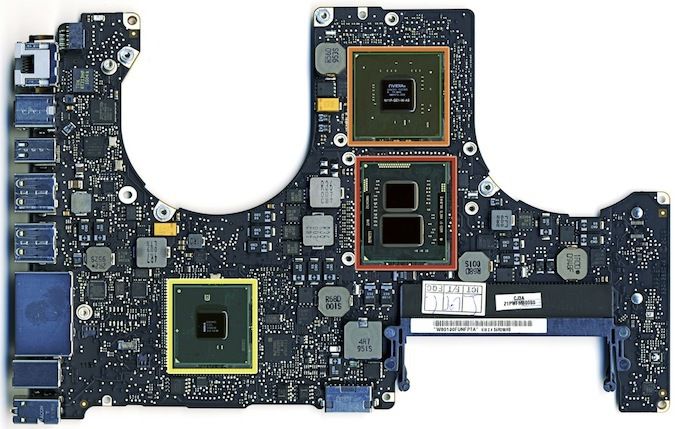Apple Mac chips are coming, and there is very little Intel can do about it

According to sources cited by Bloomberg, Apple’s focus on desktop chips has received a violent shove into high-gear, as the Cupertino tech manufacturer begins production of an ARM chip called T310, which will begin to take over low-power functions, such as sleep mode, in next generation MacBooks and other Mac products.
Currently, a similar integrated chip is already in use in the latest MacBook Pro models, to power the laptop’s Touch Bar, independently from the main Intel Core processor.
While nothing official has been shared by Apple, it’s not hard to envision a future in which third-party chips could be phased out completely, in favor of homegrown processing, such as in the case of the A-Series processors powering all iPhone, iPod and iPad devices, the S-Series chip powering the Apple WAtch, and the W-Series chip, powering Apple EarPods.
One hurdle comes in terms of battery efficiency, which is a key factor in Apple MacBooks especially. To phase out Intel processors, and still retain the same, or better 10-hour battery life standard, Apple must be able to come up with a CPU capable of rivaling both Intel and AMD, two companies with decades of experience in manufacturing chips designated to the processing of central and primary functions, in desktop and laptop computers.
Needless to say, graphic chips are another area in which Apple needs to focus, on a path of full “proprietarity”. Manufacturers like NVIDIA, MSI, and once again, Intel, have been at the forefront of chip engineering, to a point where GPUs are so incredibly powerful, they can be used to create portable supercomputers capable of teraflops of calculations per second, which is fast enough for processing information such as sensor data in self-driving cars, artificial intelligence, and other types of high-performance scientific analysis.
With that said, Apple seems to be very motivated in coming up with its own solution to power its desktop offerings, and if successful, this could result in Apple seizing 100% of creative control that goes into Apple Macs, with a far tighter tuning of MacBooks and desktop Macs with macOS, than it is, and ever was.
Battery life will also see dramatic improvements, as testing and engineering will happen in house, just as it already happens with iPads and iPhones.
Should Apple succeed in creating a proprietary “Mac” chip, there is also the matter of memory, and logic board components, also currently requiring chips sourced by manufacturers like Qualcomm, Broadcom, and Samsung. This includes RAM, northbridge/southbridge chipsets, integrated audio, and a variety of controllers and sensors to manage functions like USB data handling, wireless connectivity, and video controllers.
As always, one big indicator of a technological shift as disruptive as what Apple is expected to accomplish, might be foretold by signs such as Apple hiring sprees in the direction of CPU engineering, manufacturing and design, with an array of very specific categories, as it already happened in 2015, when Apple made a public bid for a position of engineer with expertise in the field of wireless charging and water resistant SoC.
Ready to shop?
If you are looking for the perfect MacBook, PortableOne has you covered with a great selection of Apple MacBooks, as well as the newly unveiled 13 inch and 15 inch MacBook Pro with TouchBar.